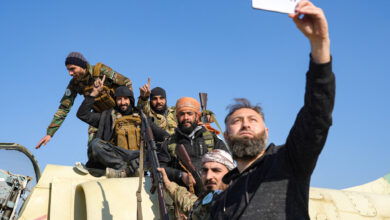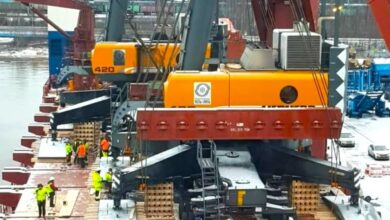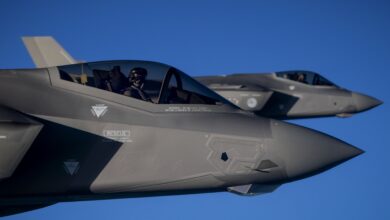
The Sahel is at a crisis point. New reports alleging that the Nigerien military executed at least 71 civilians over five days earlier this year, while shocking, are just the tip of the iceberg.
Between January and July 2020, state security forces killed at least 688 civilians in the region, a nearly 60 percent increase over the same period in 2019. Amnesty International reported more than 200 civilians killed or forcibly disappeared by state security forces in the Sahel in February and March 2020 alone.
State-sponsored extrajudicial killings are a primary driver of recruitment for jihadist groups and other violent non-state actors. For many civilians, who have witnessed the rampant violence of state security forces, such groups provide a legitimate alternative to the government.
From 3 February to 09 April 2020, the security forces from Mali, Niger, and Burkina Faso committed 199 incidents of human rights violations against civilians which include enforced disappearances and extrajudicial killings.
Read more here:https://t.co/aLSmfG2c9V pic.twitter.com/RebeUbAxsu— Amnesty West & Central Africa (@AmnestyWARO) June 10, 2020
Resultantly, despite hundreds of millions of dollars in security assistance contributed by the US since the Sahel conflict began in earnest in 2011, the civilian population is less safe than when the US first began its efforts. Violent non-state actors are increasingly emboldened.
It is against this backdrop that America has been deepening its counterterrorism footprint, particularly through the 2019 inauguration of a $110-million drone base in northern Niger.
Yet as armed MQ-9 Reaper drones now fly high in the sky above the Sahel, there is mounting evidence that the current drone-focused US security policy in the region is actually contributing to deepening instability. Without efforts to push defense institution building, millions of US dollars pumped into drone support will be fruitless.
US Understanding of the Sahel Conflict
The American understanding of the conflict in the Sahel as purely an exercise in counterterrorism is deeply flawed. It negates the localized nature of instability as well as the deep-seated popular anger towards the region’s national governments for decades of human rights abuses, corruption, and poor governance.
While terrorist organizations like Al-Qaeda in the Islamic Maghreb are present and active in the Sahel, there is also a multitude of local and regional violent non-state actors who are only tangentially associated with Islamic terrorism.
As a result, an overt focus only on counterterrorism neglects the complex nature of the conflict and the role of state-sponsored abuses in furthering instability.
How Can the US Play a Constructive Role in the Sahel?
The Department of Defense (DoD) should first shift its focus away from counterterrorism and towards defense institution building. By supporting partner states in developing the institutional foundations needed for an effective and legitimate defense sector, defense institution building provides an opportunity for the US to both enhance its strategic aims while at the same time promoting good governance and broad respect for human rights. This is key to turning the tide against instability in the Sahel.
This is not a new idea. Defense institution building is a powerful tool that the DoD itself recognizes is key to long-term peace and security in the Sahel and is even required under US Code. Yet in practice, this approach has been ignored in favor of short-term militarized tactics.

US-led defense institution building has already had success in Africa.
For example, in Liberia, the US overhauled the Liberian Ministry of Defense in the early 2000s following the First and Second Liberian Civil Wars. While challenges remain, US-led defense institution building helped stabilize Liberia’s security situation and improve civilian-led governance structures over the military.
After more than a decade of US-led security sector reform and defense institution building, mass atrocities committed by the Liberian military have all but stopped.
US Drone-First Policy
While the current drone-heavy, counterterrorism-focused policy may appeal due to its relatively low cost and organizational simplicity, neither the US nor its partner states in the Sahel will achieve their goals without first rebuilding and reforming defense institutions.
The American drone-first policy dangerously undercuts these goals and threatens to reverse any progress made towards peace and security.
Without adequate defense institution building to ensure that Sahel partner states’ security forces respect human rights and the rule of law, the US security assistance dollars and drone support will go to waste at best, while at worst, they will contribute to growing instability and civilian casualties.
 Alexander Bertschi Wrigley is an Emerging Expert on security force assistance with the Forum on the Arms Trade and holds an MA in International Security with a focus on North Africa and the Sahel from Sciences Po Paris.
Alexander Bertschi Wrigley is an Emerging Expert on security force assistance with the Forum on the Arms Trade and holds an MA in International Security with a focus on North Africa and the Sahel from Sciences Po Paris.
Disclaimer: The views and opinions expressed here are those of the author and do not necessarily reflect the editorial position of The Defense Post.
The Defense Post aims to publish a wide range of high-quality opinion and analysis from a diverse array of people – do you want to send us yours? Click here to submit an op-ed.











